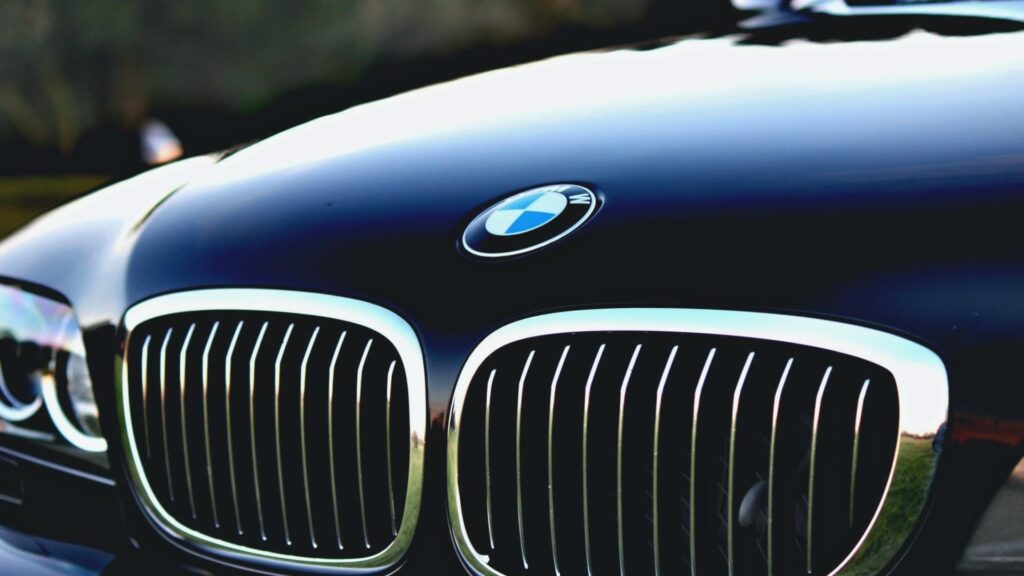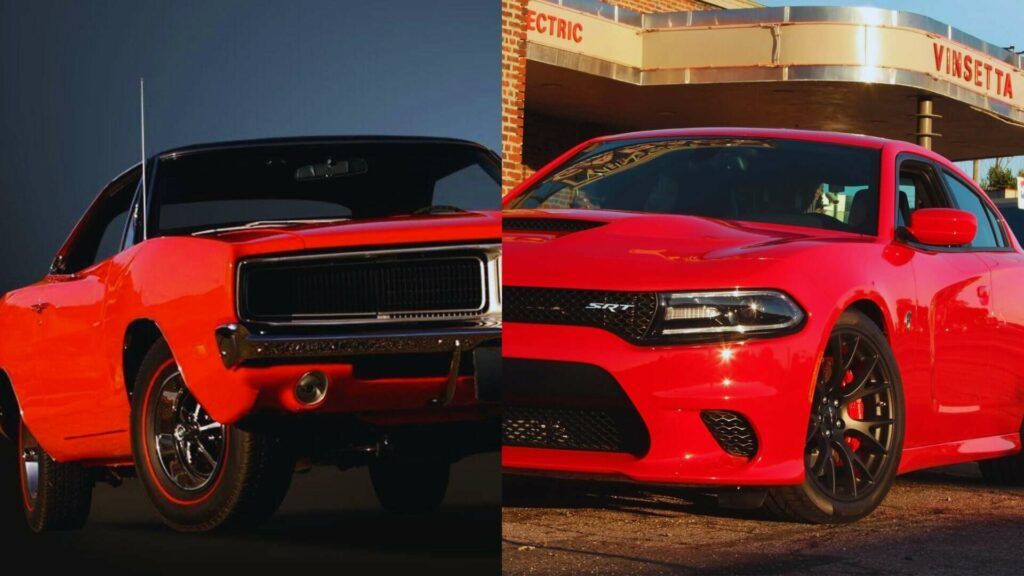As far as luxury car brands go, BMW is one of the first ones that come to mind, and with that comes a premium price tag on its models.
But aside from actually buying a BMW from the showroom floor, how much does it actually cost to own and maintain one?
As you read through our article, you’ll find out the various maintenance costs for each BMW series and how they compare to other brands.
But to get things started, let’s first answer the general question below.
Are BMWs expensive to maintain?
BMWs are luxury cars, so they are 48% more expensive to maintain compared to cars from non-luxury brands. However, they’re still 19% cheaper than the average for luxury brands.
BMW maintenance costs an average of $968 per year, which is a lot more expensive than the non-luxury brand average of $652.
In the table below, you can see how BMW compares against the annual maintenance cost of other luxury car brands as well as the industry standard average.
Both the industry standard average and all the annual maintenance costs for each vehicle brand below are according to the estimates of Repairpal.com.
As for the luxury brands’ average, we have based our data on lanterncredit.com’s 10-year maintenance cost estimate of $12,000 and divided it by the number of years.
As expected, you’re going to be paying quite a pretty penny for maintenance when you own a BMW. This is at least true when compared to owning the average car.
But do take note that these are just ballpark figures, as they can easily change depending on several factors, such as the state that you live in or the availability of parts.
To further familiarize yourself with the maintenance costs of a BMW, we’ve taken on the task to gather as much info as we can on each BMW series’ maintenance costs below.
Maintenance Costs Per BMW Series
While we already know that BMWs are more expensive to maintain than the average car, the exact cost will still depend on the specific BMW series and models themselves.
Thus, we’ve laid out all of the different maintenance costs for each BMW series to the best of our ability.
We would like to give a disclaimer that not every BMW model will have a complete set of data.
This is because some model years do not have any available info regarding their maintenance costs just yet.
Additionally, some models have only been released recently. Thus, they will obviously lack any sort of data from the years prior to their release.
Also, the calculated average maintenance cost for each BMW series is only based on the data that we’ve included in the tables.
Hence, the calculations do not necessarily represent the maintenance costs of any other BMW model outside the tables.
BMW 3-Series Maintenance Costs

The BMW 3-series is undoubtedly one of the most popular series to ever be made by the German automaker.
As such, it’s one of the most common BMW models to be serviced. However, the exact maintenance cost actually varies quite a lot depending on the exact model and year.
When averaging all the costs below, you can expect to pay around $862 annually to maintain a BMW 3-series, though this can be as low as $748 when other models are considered.
This makes the 3-series one of the cheapest BMW models to maintain from the lineup.
However, it’s still worth noting that some 3-series models during some years easily go past the $1,000 mark in maintenance costs.
The BMW 335i is the most expensive to maintain out of the models we’ve included, as its maintenance costs went over $1,000 multiple times from 2007 to 2016.
In comparison, the BMW 328i’s annual maintenance costs never went past $900 within the indicated model years, making it the cheapest 3-series model as far as this table is concerned.
Another 3-series model worth mentioning is the BMW 318i, which is quite an older model that still has a similar maintenance cost to even the more modern 3-series models above.

1991 to 1998 BMW 318i models have a combined average maintenance cost of $666, which puts the 318i well within the range of maintenance costs listed above.
But while $666 can generally be considered a cheap maintenance cost for a BMW, do take note that it’s a BMW from the 90s, making it quite an expensive car to maintain nonetheless.
BMW 5-Series Maintenance Costs

The 5-series is another well-known lineup of models from BMW. Despite having slightly larger dimensions than the 3-series, it still has comparable maintenance costs.
When looking at the entire column of the BMW 528i, we can see that none of its model years ever reach $900 worth of maintenance costs.
This makes it the cheapest 5-series model to maintain from this table, which actually makes sense as it’s also the cheapest 5-series to buy among the three models included.
The BMW 550i, on the other hand, has the most expensive annual maintenance cost from this list, amounting to about $1,013 when taking the average of all model year costs available.
Coming at a pretty close second is the BMW 535i, which has a calculated average maintenance cost of $972 per year.
This is because, just like the 550i, a few of the 535i’s model years also cost upwards of $1,000 in maintenance.
When we take the average maintenance cost of all three of these 5-series models, we land at a value of $933, which is $71 more than our calculated average for the BMW 3-series.
BMW X-Series Maintenance Costs

The BMW X-series is comprised of several crossover models, SUV models, and even SAC models (Sports Activity Coupe) made by BMW.
Just by looking at the table below, we can already get an idea of how expensive it is to maintain a BMW X-series compared to the other series.
But surprisingly, starting in 2019, annual maintenance costs for the BMW X3 and BMW X5 models have significantly declined.
This puts both of them on par with the annual maintenance costs of the X7, which is BMW’s largest and most expensive SUV starting in 2019.
The most expensive BMW X5 models to maintain tend to be those from 2009 to 2018, averaging well over $1,000 in expenses throughout these years.
In fact, to give you a clearer idea of how expensive it is to maintain an X5, we have dedicated an entire article to the BMW X5’s common problems that you can also consider reading.
Similarly, X3 models from 2011 to 2018 also reach $1,000 or more in annual maintenance costs on average.
However, when we compare the maintenance costs of all three X-series models from 2019 to 2021, the BMW X7 comes out on top as the most expensive to maintain.
This is unsurprising, as the X7 is, after all, the most expensive BMW SUV to date. It’s still yet to be as expensive as the older X3 and X5 model years, however.
Once again, taking the average of all the entries in the table below gives us an average maintenance cost of $965 for the BMW X-series.
Therefore, this makes the BMW X-series more expensive to maintain compared to a 3-series or a 5-series on average.
One model that we didn’t include in the table is the BMW X6, as we only have data regarding the general yearly maintenance cost that it has, which amounts to around $1,206.

This amount is still on par with most of the maintenance costs of the other X-series models, especially from 2011 to 2018.
As BMW’s only SAC model, the BMW X6, further proves that you’ll be shelling out even more money when maintaining anything of this size from the luxury car manufacturer.
Why are BMW vehicles more expensive to maintain?
Buying a BMW is already a luxury, to begin with, so it’s already a given that maintaining one will come at a higher price than the average car.
However, there are obviously more specific reasons as to why the required maintenance for them costs more, and we’ll be going over them one by one below.
Common Reasons Why BMWs are Expensive to Maintain
- They have advanced and sophisticated engineering
- They are equipped with premium parts from the factory
- Synthetic engine oil is recommended for them
- Various repairs are needed for high-mileage models
- Neglect from the owners can rack up costs
Advanced and Sophisticated Engineering
It’s no surprise that a well-known luxury car manufacturer like BMW would have all sorts of aces up its sleeves in terms of automotive technology.
BMW has long been regarded as one of the greats in German engineering, as it’s able to come up with a lot of innovations before other manufacturers do.
Because of this, you’re not exactly paying for just any ordinary car that gets you from A to B.
Thus, the amount of engineering experience needed to properly maintain a BMW, especially a modern one, is not something that just about anyone can gain.
Premium Parts
This is somewhat related to the last reason, as BMWs don’t use just any cheap part that you can easily find online. Rather, a lot of research and development went into the parts they use.
Aside from the required knowledge to maintain them, BMW vehicles also require original (OEM) parts that are specifically made for them in order to work properly.
Such parts also come with premium price tags, and if one of them breaks or needs repairs, then expect the replacement parts to be quite pricy as well.
Synthetic Engine Oil Requirement
BMW itself recommends synthetic engine oil to be used for its vehicles, which will cost you a bit more compared to non-synthetic engine oils.
Compared to non-synthetic oils, synthetic engine oil contains molecules that are more uniform and have fewer impurities.
Not only does this make synthetic oil perform better at extremely high and low temperatures, but it also reduces the buildup of sludge or deposits inside the engine.
This, combined with the fact that BMW models commonly require 7 quarts of oil for their engines, will certainly have an effect on the total maintenance cost.
Various Repairs for High-Mileage Models
As BMW models rack up thousands of miles in their lifetime, the need to repair all sorts of hidden issues becomes increasingly apparent.
It’s very common for older BMWs, especially those that already crossed the 100,000-mile mark, to experience oil leaks and malfunctioning electronics.
Furthermore, BMWs have their own variable valve timing system called VANOS (Variable Nockenwellen Steuerung), which is known to go bad in higher-mileage models.
Once a BMW’s VANOS goes bad, authorized service centers are more than likely to replace it entirely instead of repairing it, further increasing the total maintenance cost in the process.
Neglect from Owners
One more possible reason why BMWs are expensive to maintain, which can actually be applicable to any car, is neglect from the owners themselves.
A big mistake that can cause a lot of problems further down the road is not following the recommended maintenance routine for your BMW.
Some more specific mistakes can include having an overdue oil change, not replacing failing parts right away, or not undergoing a much-needed “tune-up” for your BMW’s engine.
Though maintenance costs for a BMW are already expensive even when you get everything right, neglecting its maintenance can make an even bigger dent in your wallet in the long run.
What is the cheapest BMW to maintain?
Generally speaking, the BMW 3-series is the cheapest BMW series to maintain from the lineup, as the average maintenance cost for it is only $748 per year.
Specifically, the BMW 328i model years from 1996 to 2016 are the cheapest 3-series models to maintain with an average maintenance cost of $773 per year.
Another noteworthy BMW that is a bit older yet still cheap to maintain is the BMW E28 5-series.
While we don’t have an official average maintenance cost for the E28, anecdotal reports from owners state that you can expect to spend $600 a year on average.
However, since it is an older BMW, initial costs may still be high in order to address any of its issues. Thus, finding a good and well-kept example is also key to keeping costs low.
If you fancy something a little bit more sporty, then the BMW Z4 is one of the cheapest sports cars to maintain from the brand with an average cost of $895 per year.
Are BMWs reliable?

The reliability of a BMW will be dependent on the specific model, generation, and even the amount of care that previous owners have given it.
For instance, the BMW X5 has been plagued with different kinds of reliability issues, but some of those issues are only true for specific generations of the X5.
Specifically, the older E53 and E70 generations of the BMW X5 are known to be quite unreliable because of the plethora of engine, transmission, and leak-related problems they have.
However, newer BMW X5 generations are able to keep such problems to a minimum a lot better than before.
From this example, we can see that it’s already quite difficult to answer the question of whether BMWs are reliable or not with a simple yes or no. Rather, it’s more of an “it depends”.
We can also see this kind of instance when the BMW 3-series convertible and BMW 5-series were ranked 1st and 3rd in the list of the least reliable cars of 2012.
Yet, in more recent years, both the newer 3-series and 5-series lineups are significantly better in terms of reliability due to the various modern features they have.
So if we were to take the reliability of both older and newer BMW models into consideration, then BMW seems to have “average” reliability.
This is especially when you consider there are other brands like Toyota and Honda, which are both considered to manufacture some of the most reliable vehicles out there.




